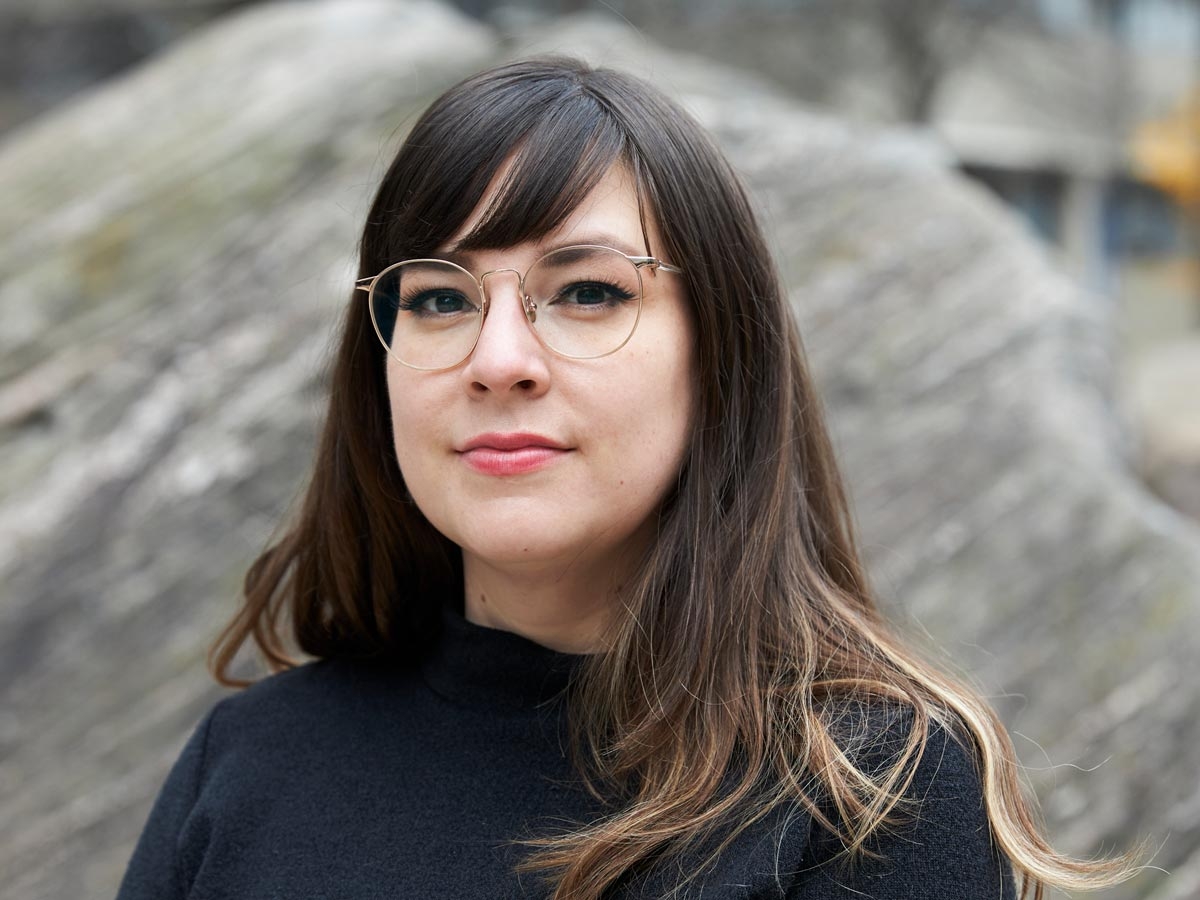Caring for community at the heart of Indigenous professor’s research project

Sociology professor Eva Jewell is Anishinaabekwe from Deshkan Ziibiing (Chippewas of the Thames First Nation). She uses community-centred research methods to highlight the strengths of Indigenous peoples, cultures and communities.
As more and more full-time workers struggle to balance paid employment and unpaid care work for their relatives, there is an opportunity to learn from Indigenous ways of caring. From supportive workplaces to a care-centric family culture, Indigenous perspectives shared in a study by Toronto Metropolitan University (TMU) sociology professor Eva Jewell demonstrate how prioritizing care economies leads to positive outcomes.
Professor Jewell is Anishinaabekwe from Deshkan Ziibiing (Chippewas of the Thames First Nation). After seeing Indigenous perspectives left out of the majority of studies examining the stress, mental health and financial challenges of worker-carers, she began a collaborative study with an Indigenous Friendship Centre in the Niagara region. Professor Jewell conducted two focus groups/sharing circles in order to gather urban Ontario Indigenous perspectives on balancing paid and unpaid work.
Participants shared that while balancing paid work and care work was stressful, they viewed their caregiving as both morally and culturally important. One participant found it important to show her children “how we take care of our people.” Another participant felt a sense of duty to care for a community member who grew up in foster care. The participant felt they were taking on the “traditional role of auntie” for the community member, who otherwise had no kin.
Another finding of the study was the guilt that Indigenous participants felt, especially when they worked for mainstream or non-Indigenous employers. Some participants felt they were letting down their co-workers if they took time off, while one said she could not talk about her caregiving responsibilities with her co-workers or bosses.
Differences between Indigenous and non-Indigenous workplaces were also highlighted in the study, with participants feeling Indigenous workplaces had a mindset that supported carers at work. Examples include viewing employees as humans with care responsibilities, not just as workers, offering practical and emotional support to employees and granting access to days off and compassionate leave.
While the study had a small sample size, professor Jewell says the methodology chosen for the study favours relationship building with community over the quantity of participants. According to professor Jewell, the approach is important for a community that has been over-researched and exploited.
“Indigenous scholar Linda Tuhiwai Smith said, very famously back in 1999, that research is one of the dirtiest words for Indigenous Peoples because of how exploited we've been,” said professor Jewell. “I carry that when I walk into a community as a researcher. There is a lot of colonial baggage in academia and a lot of skepticism from the community, wondering, ‘What are these university researchers doing? What do they want from us? Are they going to exploit us more?’”
To approach the study with respect for participants at the forefront, professor Jewell and her co-researcher formed relationships with the Friendship Centre and its community members during a previous study that was initiated by the Friendship Centre. The researchers later proposed to the Friendship Centre the idea for the study exploring unpaid care work.
Researchers employed an adapted version of the Listening Guide methodology – listening for how participants told their stories, how they spoke about themselves and how socio-cultural issues such as settler colonialism and capitalism affect the participants' experiences and narratives. The methodology ensured the researchers truly heard what the Indigenous participants said and helped the researchers identify and highlight the strengths of participants and their communities.
“Indigenous people have a lot to share and offer,” said professor Jewell. “Our perspectives matter.”
Read “‘Looking after our own is what we do’: Urban Ontario Indigenous perspectives on juggling paid work and unpaid care work for adult family members” (external link, opens in new window) in Wellbeing, Space and Society.